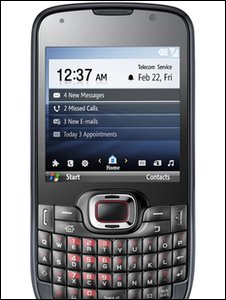Yorkshire, UK-based firm Peratech has developed a composite material that would soon enable a host of handheld electronic devices to be pressure-sensitive. The technology opens the possibility for “3D” touchscreens, in which instead of many pages of applications, users will choose their app from a single page by varying the pressure applied to a screen. The pressure-sensitivity could also allow the speed of scrolling a page vary with the amount of pressure applied by the fingers.
Both Samsung and Japanese touch-screen maker Nissha have licensed the technology from Peratech.
According to the BBC, “The composite works by using spiky conducting nanoparticles, similar to tiny medieval maces, dispersed evenly in a polymer. None of these spiky balls actually touch, but the closer they get to each other, the more likely they are to undergo a quantum physics phenomenon known as tunnelling.
Tunnelling is one of several effects in quantum mechanics that defies explanation in terms of the “classical” physics that preceded it. Simply put, quantum mechanics says that there is a tiny probability that a particle shot at a wall will pass through it in an effect known as tunnelling. QTC-enabled handset
Similarly, the material that surrounds the spiky balls acts like a wall to electric current. But as the balls draw closer together, when squashed or deformed by a finger’s pressure, the probability of a charge tunnelling through increases. The net result is that pressing harder on the material leads to a smooth increase in the current through it.”
Source: BBC News



